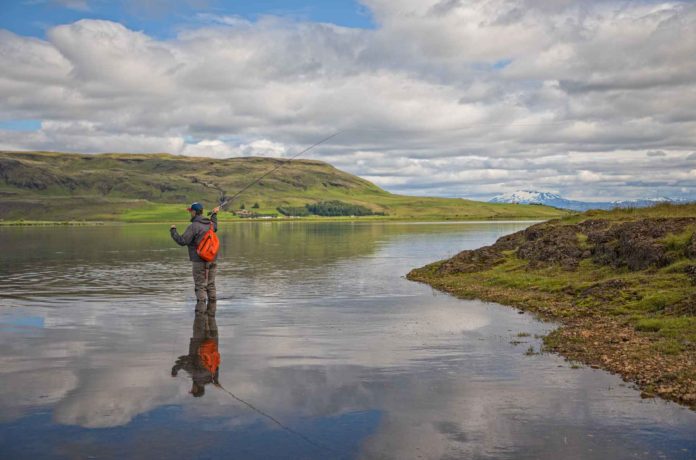Remember when 2020 came to a close? When most of us eagerly put that pandemic-spiked year into the rearview mirror with zeal, assuming that 2021 would mark a return to all things normal? When we’d gather with friends, return to traveling the country and the globe, and work and play just as we had before a novel coronavirus showed up and turned life upside down? Well, that didn’t exactly go to plan. But, at the same time, it didn’t entirely not go to plan, either. Life did begin to return to normal—even if it happened more gradually than most of us would have liked or expected. Businesses re-opened, travel resumed, and events and activities that were scratched off the calendar in 2020 were once again part of our lives, albeit often in a modified, more deliberate fashion.
Unlike our reader favorites from 2020, which were peppered with COVID-related topics, this year’s readers clearly returned their focus to matters more strictly related to fly fishing—whether fly patterns, skills and technique, or just musings on the state of the sport in general.
Here are the 10 Hatch Magazine stories of this 2021 that saw more eyes than all the others. Our team of editors and contributors has also compiled its list of favorites from the past year, so stay tuned for that look back at 2021.
Readers are typically eager to absorb each nugget of wisdom that angling savant George Daniel opts to impart, whether about dry fly fishing, fly tying, gear organization, or nymphing—the segment of the sport for which George is best known. This year, George’s piece on when anglers should opt for a dry-dropper nymphing rig instead of trendy, fast-sinking Euro and other tight-line rigs, bubbled into the top 10 reader favorites.
There’s a new tool in the battle to control invasive brook trout populations in the West, and it just happens to be tiger muskie—a hybrid of musky and pike—which can grow to enormous lengths and are a prized catch for recreational anglers.
The way each of us sees the sport of fly fishing changes throughout our lifetimes—thanks to things like time spent on the water, individual experiences, and the influence of others, just to name a few. Sometimes those changes come gradually, and other times—like after your first season spent working as a fly fishing guide—they come more suddenly. New contributor Jacob Friesen relates 5 ways his fly fishing changed after a summer spent guiding trout anglers.
“I’m a firm believer that there’s one overarching reason to choose fly fishing over the alternatives, and that’s because it’s more fun and more enjoyable. There are easier ways to catch fish, of course — bait fishing and spin fishing both come to mind — and it’s obvious that those other methods don’t require as much skill, or as much perseverance, or as much of a financial investment. If we want to be frank, we should acknowledge that most of us prefer fly fishing in spite of the fact it’s not the most efficient way to spend our time on the water …”
Todd Tanner explores how different anglers seek different things when they head to the water, and we each might find balance in our fishy pursuits.
Chris Hunt offers an ode to the Slumpbuster, which he calls “a fly that lives up to its name.” Plus instructions on how to tie it.
Most anglers quickly come to the realization that when nymphing, two flies is almost always better than one. Once we each gain the aptitude to fish double-nymph rigs while avoiding frequent tangles or all-out bird’s nests, double-nymph rigs become the coin of the realm when fishing below the surface. But which two nymph pairs are best? Ben Kryzinski offers up his picks.
Apparently one ode to a great fly wasn’t enough for this year’s readers. Chris Hunt is back with a second. This time, it’s Norm Zeigler’s Schminnow.
If there’s one thing virus-tainted 2020 gave us, it was an excuse to spent more time outdoors with friends, even in weather that would normally cause us to congregate around wood stoves and fireplaces instead of firepits and outdoor ovens. But, congregate we did, and we spent most of it testing a series of fire pits, wood-fired pizza ovens, and hardwood cooking setups. The result was Backyard fire, which details our favorite picks for hardwood cooking and staying warm outdoors.
“For most of the five centuries since Dame Juliana’s book, fly fishing was a craft, and, in the hands of a few of its practitioners, even an art. It was personal, a commitment to a discipline that could never really be mastered, only studied with close attention to detail and undying enthusiasm. It gave rise to a small cadre of specialists who fabricated exquisite tools for the pursuit of fish, from reels and rods to the pinch of fur and feathers that decorated the hook. Only in my admittedly lengthy lifetime has the discipline become a part of pop culture and a tempting source of revenue for Big Business …”
“When a sport becomes an industry, something is lost,” Chris Madson argues.
Quality vs. quantity, which is most important in your fishing? Are the two mutually exclusive, or can anglers seek both when they head to the water? The way Todd Tanner sees it, a lot of anglers are wading off in opposite directions.
Credit: Source link































